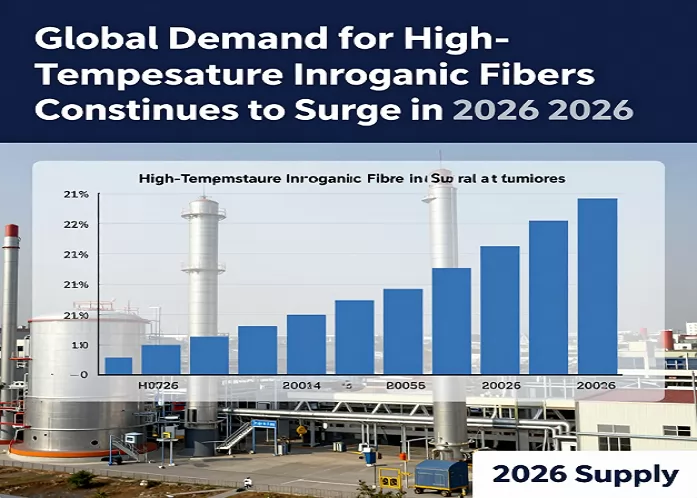Polysulfone (PSU) is a slightly amber-colored, amorphous, transparent or translucent polymer with excellent mechanical properties. It exhibits high rigidity, wear resistance, and high strength, maintaining good mechanical performance even under steam sterilization and other disinfection environments. Its long-term service temperature is 160°C, and its short-term service temperature is 190°C. It possesses high thermal stability, hydrolysis resistance, good dimensional stability, low molding shrinkage rate, is non-toxic, radiation resistant, flame retardant, and self-extinguishing. It can be widely used in machinery manufacturing, electronics and electrical appliances, automobiles, aerospace, medical devices, and other fields.
Polyphenylsulfone (PPSU), a type of poly (phenylene sulfone) resin, is a thermoplastic engineering plastic. Its molecular backbone contains sulfone groups and aromatic nuclei, classifying it as a non-crystalline resin. However, some of its mechanical properties surpass those of polysulfone resin. It is stable against general acids, alkalis, salts, alcohols, and aliphatic hydrocarbons, except for strong polar solvents, concentrated nitric acid, and sulfuric acid. It offers good rigidity and toughness, excellent temperature and heat oxidation resistance, superior creep resistance, non-toxicity, good insulation, and self-extinguishing properties, and is easy to process. As it does not contain bisphenol A (BPA), it is widely applicable for medical device components, tableware, cups, feeding bottles, etc.
Polyethersulfone (PES), also a non-crystalline polymer, offers higher heat resistance and rigidity compared to polysulfone. Its glass transition temperature (Tg) is 225°C, and its heat deflection temperature (HDT) is 203°C. Mechanical properties remain largely unchanged at 200°C. PES provides excellent creep resistance and dimensional stability at high temperatures. Compared to polysulfone, PES has better melt processability and lower melt viscosity. It features low molding shrinkage (only about 0.6%) and good dimensional stability. Its primary applications are in electronics and electrical appliances, automobiles, medical devices, office supplies, filtration membranes, and other fields.
Polysulfone (PSU) Manufacturer & Bulk Supplier for Global
As a leading polysulfone (PSU) manufacturer, we provide high-performance PSU resins, granules, and customized compounds for industrial buyers, OEMs, and membrane producers worldwide. With large-scale production capacity, consistent quality, and export logistics support, we serve clients across medical device manufacturing, filtration systems, automotive parts, electronics, aerospace, and chemical processing industries.
Whether you are looking for bulk polysulfone resin, PSU pellets for injection molding, or custom compounding services, we deliver materials that meet exact specifications and international compliance standards.
High-Purity PSU Resin from a Certified Manufacturer
We produce different grades of polysulfone using advanced polymerization and precision extrusion lines. Our plant supports:
Injection molding grade PSU
Extrusion grade polysulfone
Medical-grade polysulfone
High-temperature resistance PSU
Food-contact and sterilization-compatible PSU
OEM-compounded PSU materials
All resin batches are tested for molecular weight stability, melt flow, thermal performance, and chemical resistance to ensure consistent results in large-volume production.
Why Buyers Choose Us as Their Polysulfone Manufacturer
Factory-Direct Supply – No trading middlemen, cost-efficient pricing
Bulk Order Capacity – Annual output supporting tons to container-load quantities
Stable Quality – ISO 9001 / ISO 13485 / RoHS / REACH compliant
Custom Formulation – Color matching, additives, performance tuning
International Shipping Support – FOB, CIF, DDP, and regional warehousing
Technical Support – Material selection, molding guidance, datasheets and COA
Long-Term Supply Contracts – For OEMs, manufacturers, and filtration companies
Applications of Our Polysulfone (PSU)
Our PSU materials are widely used in high-temperature and chemically demanding environments:
▶ Medical & Healthcare
Dialysis filter housings
Autoclavable components
Sterilization-resistant parts
▶ Water & Gas Filtration
Ultrafiltration and microfiltration membranes
Filter caps and housings
HVAC and industrial treatment systems
▶ Electronics & Electrical
Connectors and insulating components
High-precision molded parts
Heat-resistant circuit components
▶ Automotive & Aerospace
Under-the-hood parts
Lightweight structural components
High-strength connectors
▶ Industrial & Chemical Use
Fluid handling devices
Pump and valve components
Chemical processing equipment
Technical Specifications (Typical)
Heat resistance: up to 180–200°C
Melt Flow Index (MFI): 15–45 g/10 min (customizable)
Purity: 99%+ for medical and membrane applications
Moisture content: <0.2%
Color: Natural / transparent / custom colors available
Density: 1.24–1.31 g/cm³
Datasheets (TDS), COA, and MSDS are provided for every shipment.
OEM & Custom Compounding Services
We support buyers who require tailored properties such as:
Glass fiber-reinforced PSU
Custom melt flow ranges
Color masterbatch integration
Anti-hydrolysis and additive-modified grades
Medical and food-contact compliant materials
Membrane-grade polysulfone with narrow particle size
Private labeling and white-label manufacturing are also available for long-term partners.
Bulk Packaging & Global Delivery Options
We ship worldwide with multiple packaging formats:
25 kg bags
500 kg–1000 kg jumbo bags
Customized palletized shipments
Moisture-proof and export-grade packaging
Incoterms offered: FOB / CIF / CFR / DDP / EXW
Ports: Shanghai, Ningbo, Shenzhen, Tianjin, Hamburg, Rotterdam, LA, Dubai
Quality & Compliance
Depending on customer requirements, we provide:
ISO9001 / ISO14001 / ISO13485 certifications
RoHS / REACH / FDA / NSF compliance options
EU & US export documentation
SGS / TUV / third-party testing reports
HS code: 390729
Partnership & Supply Models
We supply to:
Filtration membrane manufacturers
Medical device OEMs
Injection molding factories
Industrial component producers
Chemical equipment manufacturers
Distributors and masterbatch compounders
Long-term framework contracts, distributor pricing, and annual procurement agreements are available. We support RFQ, tender participation, and technical audits.
Request a Quote or Sample Today
Looking for a reliable polysulfone manufacturer with stable capacity and export experience?
We can provide:
Price list per kg or per ton
CIF/FOB quotes
Sample testing for material approval
Customized PSU grade recommendations
Long-term partnership discussions
Send your requirements, target grade, or application, and our team will respond with a tailored quotation within the same day.
Why Global Buyers Choose SL Tec as Their Polysulfone Manufacturer
As a polysulfone (PSU) manufacturer backed by strong engineering and industrial integration capabilities, we offer more than just resin supply. Our team has deep roots in chemical process design, purification technology, and large-scale production transfer, allowing us to meet the requirements of high-standard OEMs and bulk buyers.
Core Advantages You Can Rely On
R&D + Engineering Integration
With technical resources from leading universities, research institutes, and in-house experts, we support projects from lab-scale validation to pilot testing and full commercial production.
Strong Process & Purification Capability
We are recognized in China for expertise in chemical distillation, separation, and precision purification — essential for producing high-purity PSU for medical, filtration and engineering applications.
Full Engineering Package Support
From Process Design Package (PDP), material selection, procurement, to commissioning and training, we provide turnkey technical solutions for clients needing custom PSU formulations or downstream processing.
Industrial-Grade Production & Customization
We supply injection molding, extrusion, membrane and medical grades of polysulfone, and can tailor melt flow, color, additives and compliance based on client requirements.
Export-Ready & Project-Oriented Service
With extensive international trade experience in chemical plants and materials, we handle documentation, packaging, compliance, and logistics for large-volume global shipments.
Long-Term Partnerships with Major Industries
Our PSU materials are delivered to filtration system manufacturers, medical device producers, membrane developers, OEM molders, and industrial component suppliers worldwide.

















